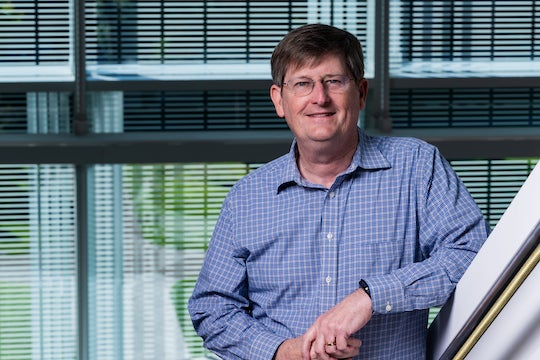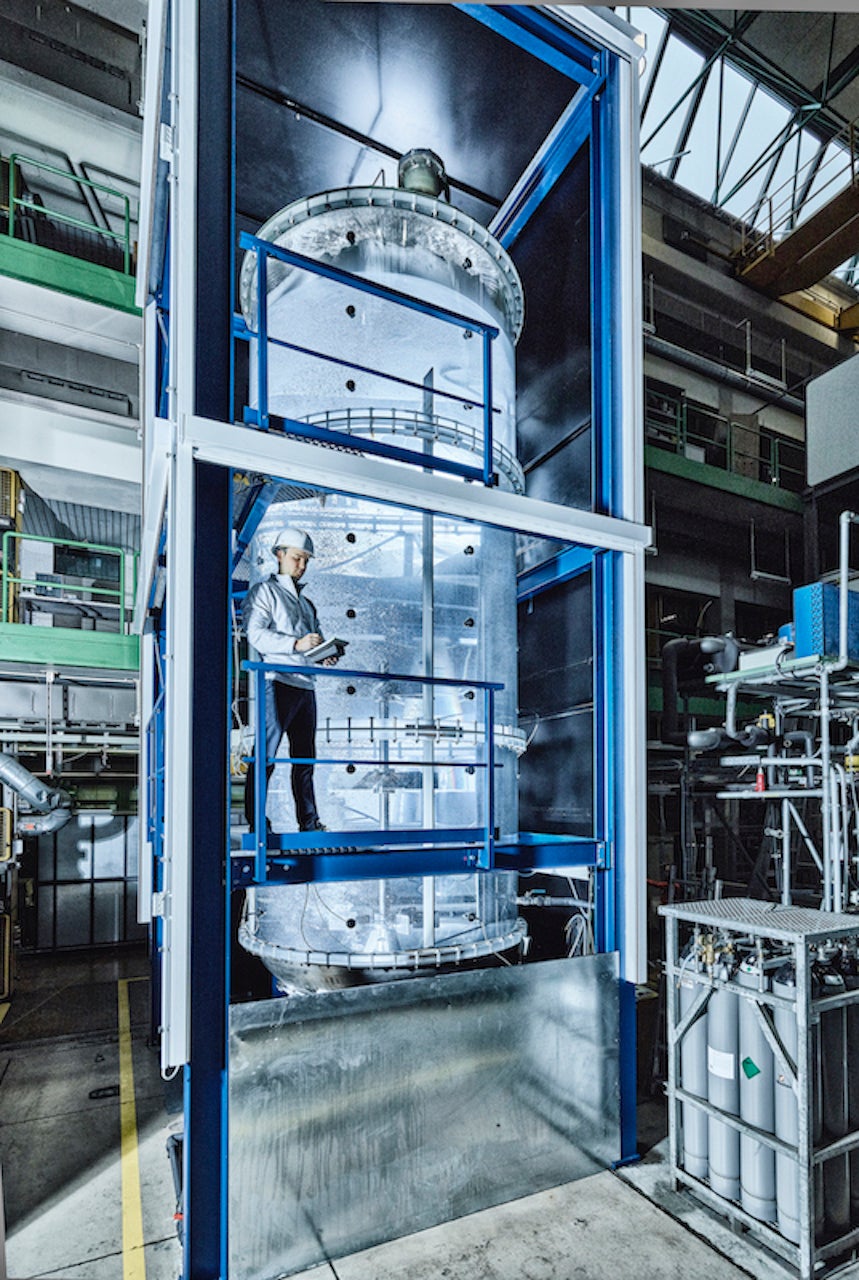Rice University chemical engineer Walter Chapman is spearheading a collaboration with the Hamburg University of Technology's SMART Reactors Collaborative Research Center, which aims to develop solutions in support of a transition from fossil fuel to renewables-based economic and production chains through innovative reactor design and development.

"We are very proud to welcome such an outstanding scientist with a global reputation to work at our Collaborative Research Center," said Irina Smirnova, a professor and vice president for research at TU Hamburg who leads the Institute of Thermal Process Engineering.
Chapman's research explores molecular interactions in fluids via tools such as simulation, visualization, statistical mechanics and nuclear magnetic resonance. His group at Rice will be conducting research to determine how different polymers respond to changing conditions such as reaction temperature and composition in order to engineer responsive materials for smart reactors.
"Typically, when you're operating a chemical reactor ⎯ for commodity chemicals, specialized chemicals or even pharmaceuticals ⎯ you're monitoring the temperature and the extent of reaction, the different components that are present in the system … and trying to control these factors from the outside," Chapman said. "What's being proposed here is to equip reactor systems with the capacity to self-regulate."

The collaboration was spurred by Chapman winning a Humboldt Research Award in 2019 from Germany's Alexander von Humboldt Foundation, a prize that honors research accomplishments and encourages foreign scientists to spend time working at research institutions in Germany. Chapman, who was named a permanent visiting professor at TU Hamburg, will also serve as co-supervisor for doctoral students at the German university. Last month, Chapman's group at Rice hosted Nanning Jaeschke, a current TU Hamburg Ph.D. student.

"Designing these reactor systems for specific applications is going to be an incredibly powerful thing to do, both in biochemical as well as in chemical systems," Chapman said. "This could potentially change the way that certain chemicals are produced, making it feasible to do so locally, relatively inexpensively and in a more sustainable manner.
"It's a different approach to reactor design that aims at process intensification: Essentially, this is about enabling smaller scale production processes, where you're making your materials when they're needed, where they're needed, rather than producing large quantities and shipping them."
Chapman is the William W. Akers Professor of Chemical and Biomolecular Engineering and director of undergraduate studies.
- Image downloads:
-
CAPTION: Walter Chapman is the William W. Akers Chair Professor of Chemical and Biomolecular Engineering and director of undergraduate studies. (Photo by Jeff Fitlow/Rice University)
CAPTION: Nanning Jaeschke (from left), Carolina Brindis, Walter Chapman and Michelle Herrera. Jaeschke is a student at Hamburg University of Technology working on the SMART reactor project who spent a week as a visiting student at Rice University. (Photo courtesy of Nanning Jaeschke/Hamburg University of Technology)
CAPTION: The bioreactor at TU Hamburg has a capacity of 15,000 liters (~3,963 gallons). (ZETA)
- Links:
-
Chapman Research Group: https://www.ruf.rice.edu/~saft/
Chemical and Biomolecular Engineering: https://chbe.rice.edu/
George R. Brown School of Engineering: https://engineering.rice.edu/
- About Rice:
-
Located on a 300-acre forested campus in Houston, Rice University is consistently ranked among the nation's top 20 universities by U.S. News & World Report. Rice has highly respected schools of architecture, business, continuing studies, engineering, humanities, music, natural sciences and social sciences and is home to the Baker Institute for Public Policy. With 4,574 undergraduates and 3,982 graduate students, Rice's undergraduate student-to-faculty ratio is just under 6-to-1. Its residential college system builds close-knit communities and lifelong friendships, just one reason why Rice is ranked No. 1 for lots of race/class interaction, No. 2 for best-run colleges and No. 12 for quality of life by the Princeton Review. Rice is also rated as a best value among private universities by Kiplinger's Personal Finance.






